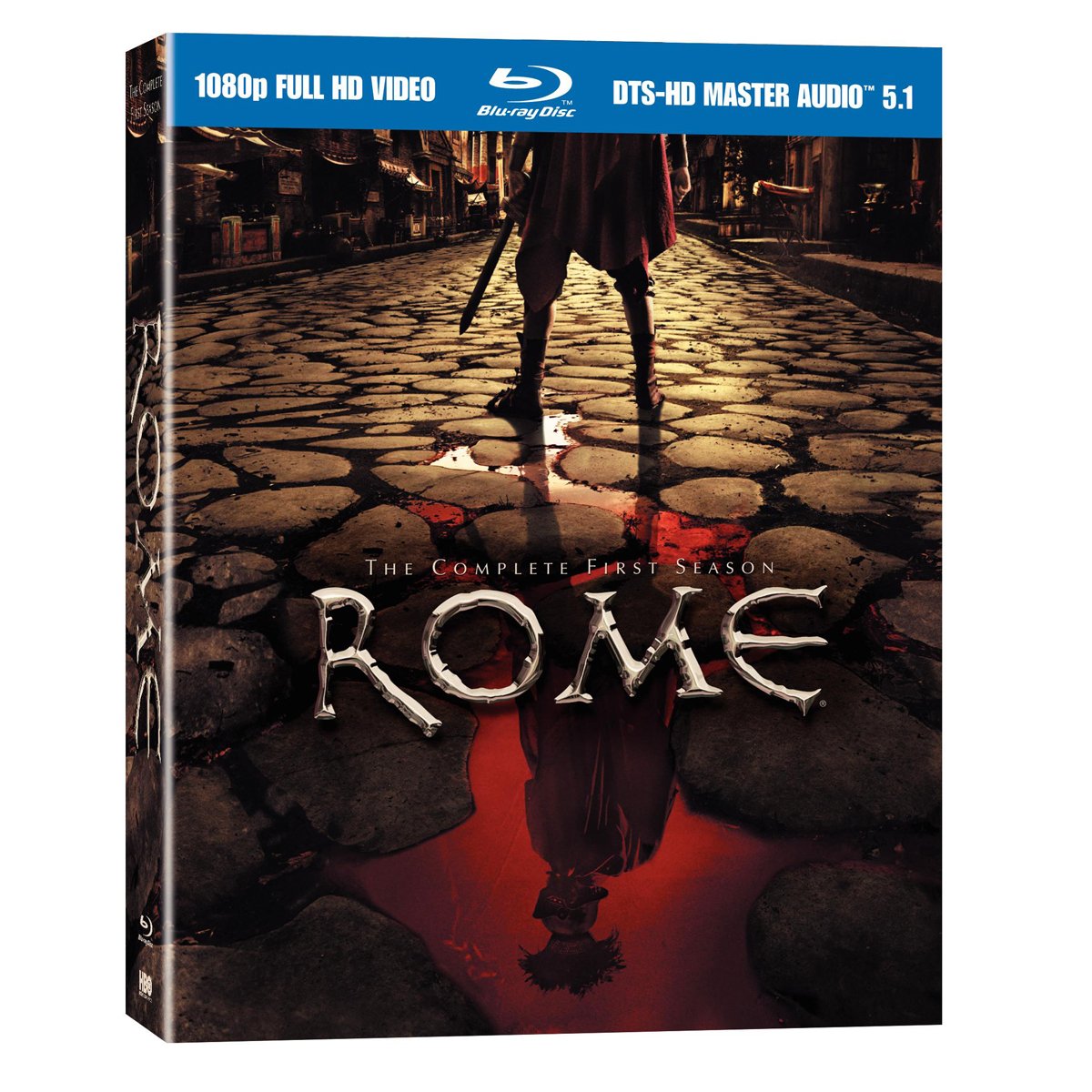Customer Services
Copyright © 2025 Desertcart Holdings Limited
Desert Online General Trading LLC
Warehouse # 7, 4th Street, Umm Ramool, Dubai, 30183, Dubai
![Rome: Season 1 [Blu-ray]](https://m.media-amazon.com/images/I/71ZtCagToXL.jpg)


Four hundred years after the founding of the Republic, Rome is the wealthiest city in the world. The Republic was founded on principals of shared power, never allowing one man to seize absolute control. But now, those foundations are crumbling...and two soldiers unwittingly become entwined in the historical events of ancient Rome. A drama of love and betrayal, masters and slaves, husbands and wives, Rome chronicles a turbulent era that saw the death of a republic and the birth of an empire.
R**R
A truly epic series!
What a fabulous mini-series! This is a stellar production (at the time it was made, it was the most expensive series ever done--HBO had to split the expense of the production with the BBC because neither could afford to produce this series on their own!). This series is a truly epic production. It is first rate in every regard.If you are a fan of "I Claudius", keep in mind that the creator of the series sites it as their all-time favorite television production. This could be considered, in essence, the prequel."Rome" covers the historical period when Julius Caesar became emperor and ends shortly before the events which were portrayed in "I Claudius" first begin.While "Claudius" centers upon the royal family and the highest levels of Roman society, "Rome" centers upon the "regular people" as much as it does upon Julius Caesar, Augustus (originally Octavius), Marcus Antonius (Mark Anthony), Cleopatra and the other more well-known historical figures of the period.We get a very fully realized version of what life in "Rome" was really like at the time; from those living in the palaces of the rich to the average man and woman on the street.At it's core is the tale of a celebrated Roman soldier returning home to his wife and family, attempting to return to his old life and discovering that you can't ever really go home again. The world (and Rome itself) have changed and he must find a way to change along with all of it.We see life on the streets, the gangs, the criminal underworld, the underside of political rule as well as aspects of the up-side of the most powerful city in the world at that time.The cast is superb, the writing is exemplary, the direction is well above average and the production values are literally off the scale!If you are a fan of historical drama, you won't find this one lacking in anything you are looking for. I've run my bluray set three times since I purchased it and, believe me, those won't be my last viewings either! This is a series that never fails to entertain.
C**H
Excellent Show
I haven't watched the show since it was on HBO and bought it for a steal on Amazon.I forgot how great the show really was.The production values were sky high and it shows on the blu ray.The added features allow you to watch each episode with historical facts that pop up hels give a much betetr undersatnding of the time period.I highly recommend this to anyone who is a fan of the ancient Romans or anyone who likes great acting and a fantastic storyline.
S**X
Addictive viewing for fans of all things Roman.
Totally love this series and purchased series 2. I rewatch regularly and feel sad when it’s over. Fans of all things Roman would enjoy it.
T**Y
A very good video series
I thoroughly enjoyed the Rome series when it was first broadcast. I have now purchased both the first and second season DVD sets.
L**N
Rome the complete first season!
This set Exceeded my expectations, carefully packaged and arrived quickly. Thank you
D**L
I love this series
I love this series. It presents a steamy festering Rome instead of the stilted classic Rome of the old movies. I kept thinking how "mafia" it seemed. It is pretty historically accurate too which was a nice surprise. The acting was really good but I was surprised at the casting of Kevin McKidd. He's a really good actor and did a terrific job, but Italian he's definitely not. Granted there was a strong Celtic influx into Rome but still I think it was maybe not the best choice just on visual terms. I still give it 5 stars because it definitely exceeded expectations.
D**E
Truly an epic production
Fortune favors Lucius Vorenus and Titus Pullo as they march with Julius Caesar toward their fate. The blend of history and soap opera makes for fascinating entertainment, although graphic, explicit and violent the series represents the times and their values. The attention to scenic and cultural details brings ancient Rome back to life. The writers developed personalities of the historic figures such as Cato, Cicero, Pompey and Caesar so that these men seem far more than their statues or writings. The younger Octavius steal every scene in which he appears, but it is Pullo and Vorenus who make this series truly great.
D**D
Like Game of Thrones, but grounded in reality!
Great! If you like historical fiction set in ancient times, it doesn't get any better than this. Following the lives of two fictional characters as help shape (and sometimes derail) Western Civilization's first mega-empire, this is the first show I've seen that truly captures what I imagine life in antiquity must have been like. High stakes, high action and adventure, high drama, a a little humor to boot! Bear in mind, this is an HBO product, so you'll get your fill of graphic violence, sex, and nudity. Not a kids' show, but totally awesome in scope and detail. Highly recommend BOTH seasons!
Trustpilot
2 weeks ago
4 days ago